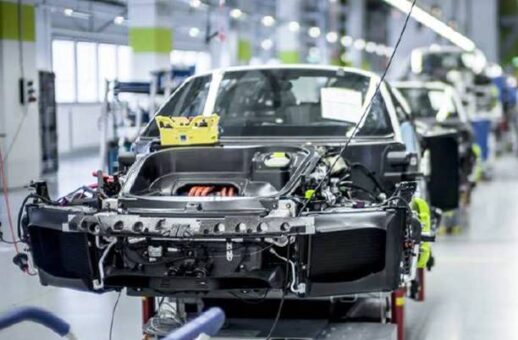KARACHI – Pakistan’s auto sales market has experienced a significant turnaround in December 2018, with a sharp rise in sales compared to the previous month.
According to analysts at Topline Securities, auto sales in the country surged by a staggering percent Year-on-Year (YoY) in December 2018, a stark contrast to the 17 percent YoY decline observed in November 2018. Moreover, sales have also risen by 11 percent on a Month-on-Month (MoM) basis.
This positive development marks the first time in 12 years that sales have increased in December on a MoM basis, with the last instance being recorded in December 2005.
Despite the apparent improvement in December 2018, the overall sales performance in the first half of the current fiscal year has been less optimistic. The total sales number during this period stood at 120,066 units, reflecting a 3 percent Year-on-Year decline. This is the first time in five years that auto sales have faced a decline during the first half of a fiscal year since 1HFY13.
Several factors have contributed to this mixed performance in Pakistan’s auto industry. The analysts at Topline Securities anticipate a significant slowdown in auto sales due to a combination of factors, including a deteriorating economy, a law that prohibits tax non-filers from purchasing cars, and multiple price hikes over the past 12 months.
Historically, auto sales in Pakistan have followed a pattern of declining in the month of December due to seasonal factors. However, the MoM increase in December 2018 is primarily attributed to higher sales in Pak Suzuki Motor Company (PSMC), which witnessed a substantial 38 percent MoM increase.
Indus Motors (INDU) managed to record a robust Year-on-Year growth of 16 percent, driven by an 84 percent YoY increase in Hilux sales and a 10 percent YoY increase in Corolla sales. However, Fortuner sales saw a significant 33 percent YoY decline. On a monthly basis, Indus Motors’ sales experienced a modest 3 percent decrease, while sales were up 8 percent Year-on-Year for the first half of FY19.
INDU’s ability to maintain growth amid challenging economic conditions is attributed to a strong order book, although lead times have reduced to a month or less for most variants due to slowing demand and resolved capacity constraints. The company continues to invest in expanding its production capacity to 75,000 units.
Rising interest rates are expected to boost INDU’s other income, as the company holds substantial net cash and short-term investments totaling around Rs29 billion, net of advances from customers.
On the other hand, Honda (HCAR) faced a 26 percent Year-on-Year and 31 percent Month-on-Month decline in sales. The sales for the first half of FY19 fell by 2 percent Year-on-Year. The drop in sales for December 2018 was primarily due to a 50 percent Year-on-Year decrease in BR-V sales and a 19 percent Year-on-Year drop in sales of City and Civic units. HCAR had shown a strong trend in monthly sales until October 2018, with sales up 8 percent Year-on-Year for the first four months of FY18.
However, the thinning of the order book, as evidenced by declining lead times (cars available in 15 days to a month), has led to a slowdown in sales. In the past two months, cumulative volumetric sales have fallen by 24 percent Year-on-Year. BR-V sales have seen the most significant decline, marking the end of its initial high-growth phase.
It’s worth noting that HCAR’s cash and short-term investments decreased to Rs14.3 billion as of September 2018, down from Rs31.6 billion in March 2018, primarily due to a decline in advances from customers.
The mixed trends in Pakistan’s auto sales market reflect the complex interplay of economic, regulatory, and market forces, making it a challenging environment for both manufacturers and consumers alike.
